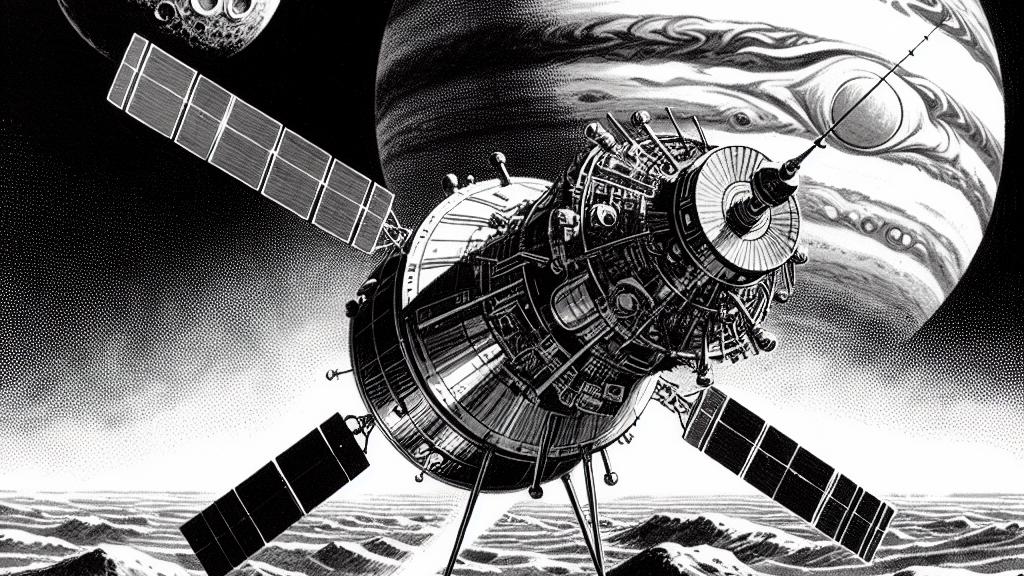Jupiter's Gravity Game: JUICE Takes the Leap with Earth and Moon!
Overview
- JUICE spacecraft is set for a historic double fly-by utilizing Earth and Moon's gravity.
- The mission ingeniously conserves fuel, enhancing its ability to explore deep space.
- JUICE aims to study Jupiter's icy moons, searching for signs of potential extraterrestrial life.

A Groundbreaking Mission
The Jupiter Icy Moons Explorer (JUICE) mission, an endeavor by the European Space Agency (ESA), signifies a pivotal moment in space exploration. Scheduled for a bold double fly-by of Earth and the Moon on August 19 and 20, 2024, JUICE aims to ingeniously utilize the gravitational fields of these celestial bodies to conserve energy for its ambitious journey to Jupiter. This maneuver marks the first time a spacecraft will harness lunar gravity as a primary assist, showcasing advanced engineering and innovative strategies in modern space missions. With its planned eight-year journey to investigate the largest of Jupiter's moons, JUICE is poised to enhance our understanding of the gas giant and its mysterious satellites.
Understanding Gravity Assists
The technique of gravity assists, or gravitational slingshots, plays a crucial role in optimizing space missions as it allows spacecraft to gain speed and alter their trajectory without expending fuel. In the case of JUICE, the spacecraft will first navigate a path around the Moon to decrease its velocity before swinging by Earth to further adjust its course towards Jupiter. This innovative method is a game-changer, enabling JUICE to travel further with reduced fuel consumption, similar to strategies used in earlier missions such as Cassini. Gravity assists exemplify the brilliance of aerospace engineering, where understanding the dynamics of celestial bodies can lead to efficient travel across vast distances in space.
Unveiling the Mysteries of Icy Moons
The scientific ambitions of JUICE are as ambitious as its flight strategy. The mission is focused on exploring Jupiter’s icy moons—Ganymede, Europa, and Callisto—which are believed to harbor subsurface oceans, making them prime candidates in the search for extraterrestrial life. Once JUICE reaches Jupiter in 2031, it will embark on a carefully planned series of close encounters, mapping and analyzing the moons with sophisticated instruments. These observations could reveal secrets about their compositions, geological activity, and potential habitability. By exploring these far-flung worlds, JUICE not only aims to advance our knowledge of the solar system but also to expand the scope of life-sustaining environments beyond our own planet.

Loading...